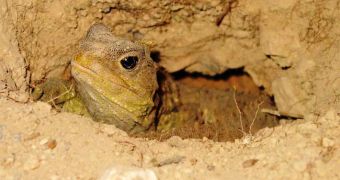When it comes to reptiles, temperature, rather than chance, decides the sex of their young ones. In most species of reptiles, an increase in nesting temperature usually gives rise to more females than males, although for a unique species of reptiles known as tuatara the situation is exactly the opposite. This basically means that if the Earth continues its global warming trend, in less than eight decades this particular species will be completely extinct as increasingly more males and very few females are born.
Tuatara is the only species of reptiles that survived the mass extinction of the dinosaurs 65 million years ago, and are believed to have walked the Earth as early as 200 million years ago. They are divided into two main species, Sphenodon punctatus and Sphenodon guntheri, with individuals measuring up to 80 centimeters in length and living in a series of small isolated islands off the coast of New Zealand.
The study was based on data collected from reptiles living on the North Brother Island in order to predict how the future population of Sphenodon guntheri would evolve with the increase of temperature. "We'd done a census of that population and already found there were more males on the island than females. We don't know if that's due to climate or not," said Nicola Mitchell of the University of Western Australia, part of the team that carried out the study.
According to their predictions a rise in temperature between 0.1 and 0.8 degrees Celsius by 2080 would ensure a balance between genders, with a small increase in the female population. However, climate change predictions are not even close to these temperatures. Climate change models indicate that by 2080 the temperature in the surrounding areas of the North Brother Island will rise by as much as 4 degrees Celsius, which basically spells disaster for the tuatara population.
Additionally, the same study indicates that the probability of tuatara adapting to the rise in temperature is relatively low, mostly due to their lifestyle. "They take about 23 years to mature, and females only breed every nine years. They aren't going to adapt like a fruit fly could," Mitchell said. The best current solution that would guarantee the survival of this species involves relocating them to areas where the rise in temperature matches their natural environment, so that a balance between genders can be maintained.

 14 DAY TRIAL //
14 DAY TRIAL //